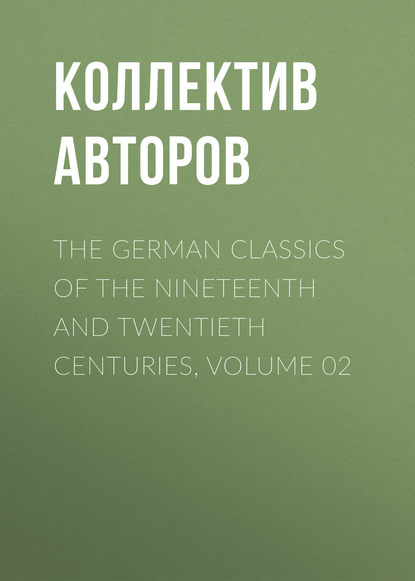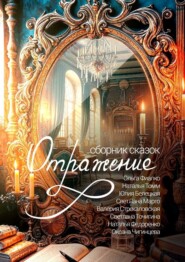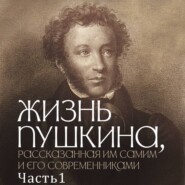По всем вопросам обращайтесь на: info@litportal.ru
(©) 2003-2025.
✖
The German Classics of the Nineteenth and Twentieth Centuries, Volume 02
Настройки чтения
Размер шрифта
Высота строк
Поля
So now stood the coffin of Ottilie, with the child's coffin at her head, and her box at her feet, inclosed in a resting-place of massive oak. A woman had been provided to watch the body for the first part of the time, as it lay there so beautiful beneath its glass covering. But Nanny would not permit this duty to be taken from herself. She would remain alone without a companion, and attend to the lamp which was now kindled for the first time; and she begged to be allowed to do it with so much eagerness and perseverance, that they let her have her way, to prevent any greater evil that might ensue.
But she did not long remain alone. As night was falling, and the hanging lamp began to exercise its full right and shed abroad a larger lustre, the door opened and the Architect entered the chapel. The chastely ornamented walls in the mild light looked more strange, more awful, more antique, than he was prepared to see them. Nanny was sitting on one side of the coffin. She recognized him immediately; but she pointed in silence to the pale form of her mistress. And there stood he on the other side, in the vigor of youth and of grace, with his arms drooping, and his hands clasped piteously together, motionless, with head and eye inclined over the inanimate body.
Once already he had stood thus before in the Belisarius; he had now involuntarily fallen into the same attitude. And this time how naturally! Here, too, was something of inestimable worth thrown down from its high estate. There were courage, prudence, power, rank, and wealth in one single man, lost irrevocably; there were qualities which, in decisive moments, had been of indispensable service to the nation and the prince; but which, when the moment was passed, were no more valued, but flung aside and neglected, and cared for no longer. And here were many other silent virtues, which had been summoned but a little time before by nature out of the depths of her treasures, and now swept rapidly away again by her careless hand—rare, sweet, lovely virtues, whose peaceful workings the thirsty world had welcomed, while it had them, with gladness and joy; and now was sorrowing for them in unavailing desire.
Both the youth and the girl were silent for a long time. But when she saw the tears streaming fast down his cheeks, and he appeared to be sinking under the burden of his sorrow, she spoke to him with so much truthfulness and power, with such kindness and such confidence, that, astonished at the flow of her words, he was able to recover himself, and he saw his beautiful friend floating before him in the new life of a higher world. His tears ceased flowing; his sorrow grew lighter: on his knees he took leave of Ottilie, and with a warm pressure of the hand of Nanny, he rode away from the spot into the night without having seen a single other person.
The surgeon had, without the girl being aware of it, remained all night in the church; and when he went in the morning to see her, he found her cheerful and tranquil. He was prepared for wild aberrations. He thought that she would be sure to speak to him of conversations which she had held in the night with Ottilie, and of other such apparitions. But she was natural, quiet, and perfectly self-possessed. She remembered accurately what had happened in her previous life; she could describe the circumstances of it with the greatest exactness, and never in anything which she said stepped out of the course of what was real and natural, except in her account of what had passed with the body, which she delighted to repeat again and again, how, Ottilie had raised herself up, had blessed her, had forgiven her, and thereby set her at rest for ever.
Ottilie remained so long in her beautiful state, which more resembled sleep than death, that a number of persons were attracted there to look at her. The neighbors and the villagers wished to see her again, and every one desired to hear Nanny's incredible story from her own mouth. Many laughed at it, most doubted, and some few were found who were able to believe.
Difficulties, for which no real satisfaction is attainable, compel us to faith. Before the eyes of all the world, Nanny's limbs had been broken, and by touching the sacred body she had been restored to strength again. Why should not others find similar good fortune? Delicate mothers first privately brought their children who were suffering from obstinate disorders, and they believed that they could trace an immediate improvement. The confidence of the people increased, and at last there was no one so old or so weak as not to have come to seek fresh life and health and strength at this place. The concourse became so great, that they were obliged, except at the hours of divine service, to keep the church and chapel closed.
Edward did not venture to look at her again; he lived on mechanically; he seemed to have no tears left, and to be incapable of any further suffering; his power of taking interest in what was going on diminished every day; his appetite gradually failed. The only refreshment which did him any good was what he drank out of the glass, which to him, indeed, had been but an untrue prophet. He continued to gaze at the intertwining initials, and the earnest cheerfulness of his expression seemed to signify that he still hoped to be united with her at last. And as every little circumstance combines to favor the fortunate, and every accident contributes to elate him; so do the most trifling occurrences love to unite to crush and overwhelm the unhappy. One day, as Edward raised the beloved glass to his lips, he put it down and thrust it from him with a shudder. It was the same and not the same. He missed a little private mark upon it. The valet was questioned, and had to confess that the real glass had not long since been broken, and that one like it belonging to the same set had been substituted in its place.
Edward could not be angry. His destiny had spoken out with sufficient clearness in the fact, and how should he be affected by the shadow? and yet it touched him deeply. He seemed now to dislike drinking, and thenceforward purposely to abstain from food and from speaking.
But from time to time a sort of restlessness came over him; he would desire to eat and drink something, and would begin again to speak. "Ah!" he said, one day to the Major, who now seldom left his side, "how unhappy I am that all my efforts are but imitations ever, and false and fruitless. What was blessedness to her, is pain to me; and yet for the sake of this blessedness I am forced to take this pain upon myself. I must go after her; follow her by the same road. But my nature and my promise hold me back. It is a terrible difficulty, indeed, to imitate the inimitable. I feel clearly, my dear friend, that genius is required for everything; for martyrdom as well as the rest."
What shall we say of the endeavors which in this hopeless condition were made for him? His wife, his friends, his physician, incessantly labored to do something for him. But it was all in vain: at last they found him dead. Mittler was the first to make the melancholy discovery; he called the physician, and examined closely, with his usual presence of mind, the circumstances under which he had been found. Charlotte rushed in to them; she was afraid that he had committed suicide, and accused herself and accused others of unpardonable carelessness. But the physician on natural, and Mittler on moral grounds, were soon able to satisfy her of the contrary. It was quite clear that Edward's end had taken him by surprise. In a quiet moment he had taken out of his pocketbook and out of a casket everything which remained to him as memorials of Ottilie, and had spread them out before him—a lock of hair, flowers which had been gathered in some happy hour, and every letter which she had written to him from the first and which his wife had ominously happened to give him. It was impossible that he would intentionally have exposed these to the danger of being seen by the first person who might happen to discover him.
But so lay the heart, which but a short time before had been so swift and eager, at rest now, where it could never be disturbed; and falling asleep, as he did, with his thoughts on one so saintly, he might well be called blessed. Charlotte gave him his place at Ottilie's side, and arranged that thenceforth no other person should be placed with them in the same vault. In order to secure this, she made it a condition under which she settled considerable sums of money on the church and the school.
So lie the lovers, sleeping side by side. Peace hovers above their resting-place. Fair angel faces gaze down upon them from the vaulted ceiling, and what a happy moment that will be when one day they wake again together!
SHAKESPEARE AND AGAIN SHAKESPEARE[1 - Morgenblatt 1815. Nr. 113 12. Mai.]
TRANSLATED BY JULIA FRANKLIN
So much has already been written of Shakespeare that it would seem as if nothing remained to be said; yet it is the peculiarity of a great mind ever to stimulate other minds. This time I propose to consider Shakespeare from more than one point of view—first as a poet in general, then as compared with poets ancient and modern, and finally, as a strictly dramatic poet. I shall endeavor to show what effect the imitation of his art has produced upon us and what effect it is capable of producing in general. I shall voice my agreement with what has already been said by repeating it upon occasion, but shall express my dissent positively and briefly, without involving myself in a conflict of opinions. Let us, then, take up the first point.
I
SHAKESPEARE AS A POET IN GENERAL
The highest that man can attain is the consciousness of his own thoughts and feelings, and a knowledge of himself which prepares him to fathom alien natures as well. There are people who are by nature endowed with such a gift and by experience develop it to practical uses. Thence springs the ability to conquer something, in a higher sense, from the world and affairs. The poet, too, is born with such an endowment, only he does not develop it for immediate mundane ends, but for a more exalted, universal purpose. If we rate Shakespeare as one of the greatest poets, we acknowledge at the same time that it has been vouchsafed to few to discern the world as he did: to few, in expressing their inward feelings of the world, to give the reader a more realizing sense of it. It becomes thoroughly transparent to us; we find ourselves suddenly the confidants of virtue and vice, of greatness and insignificance, of nobility and depravity—all this, and more, through the simplest means. If we seek to discover what those means are, it appears as if he wrought for our eyes; but we are deceived. Shakespeare's creations are not for the eyes of the body. I shall endeavor to explain myself.
Sight may well be termed the clearest of our senses, that through which transmissions are most readily made. But our inward sense is still clearer and its highest and quickest impressions are conveyed through the medium of the word; for that is indeed fructifying, while what we apprehend through our eyes may be alien to us and by no means as potent in its effects. Now, Shakespeare addresses our inward sense, absolutely; through it the realm of fancy created by the imagination is quickened into life and thus a world of impressions is produced for which we can not account, since the basis of the illusion consists in the fact that everything seems to take place before our eyes. But if we examine Shakespeare's dramas carefully, we find that they contain far less of sensuous acts than of spiritual expressions. He allows events to happen which may be readily imagined; nay, that it is better to imagine than to see. Hamlet's ghost, the witches in Macbeth, many deeds of horror, produce their effect through the imagination; and the abundant short interludes are addressed solely to that faculty. All such things pass before us fittingly and easily in reading, whereas they are a drag in representation and appear as disturbing, even as repellent elements.
Shakespeare produces his effects by the living word, and that may be best transmitted by recitation; the listener is not distracted by either good or inadequate representation. There is no greater or purer delight than to listen with closed eyes to a Shakespearean play recited, not declaimed, in a natural, correct voice. One follows the simple thread which runs through events of the drama. We form a certain conception of the characters, it is true, from their designation; but actually we have to learn from the course of the words and speeches what goes on within, and here all the characters seem to have agreed not to leave us in the dark, in doubt, in any particular.
To this end all conspire—heroes and mercenaries, masters and slaves, kings and messengers; the subordinate figures, indeed, being often more effective in this respect than the superior ones. Everything mysteriously brewing in the air at the time of some great world-event, all that is hidden in the human soul in moments of supreme experience, is given expression; what the spirit anxiously locks up and screens is freely and unreservedly exposed; we learn the meaning of life and know not how.
Shakespeare mates himself with the world-spirit; like it he pervades the world; to neither is anything concealed; but if it is the function of the world-spirit to maintain secrecy before, indeed often after, the event, it is the poet's aim to divulge the secret and make us confidants before the deed, or at least during its occurrence. The vicious man of power, well-meaning mediocrity, the passionate enthusiast, the calmly reflective character, all wear their hearts upon their sleeves, often contrary to all likelihood; every one is inclined to talk, to be loquacious. In short, the secret must out, should the stones have to proclaim it. Even inanimate objects contribute their share; all subordinate things chime in; the elements, the phenomena of the heavens, earth and sea, thunder and lightning, wild beasts, raise their voices, often apparently in parables, but always acting as accessories.
But the civilized world, too, must render up its treasures; arts and sciences, trades and professions, all offer their gifts. Shakespeare's creations are a great, animated fair, and for this richness he is indebted to his native land.
England, sea-girt, veiled in mist and clouds, turning its active interest toward every quarter of the globe, is everywhere. The poet lived at a notable and momentous time, and depicted its culture, its misculture even, in the merriest vein; indeed, he would not affect us so powerfully had he not identified himself with the age in which he lived. No one had a greater contempt for the mere material, outward garb of man than he; he understands full well that which is within, and here all are on the same footing. It is thought that he represented the Romans admirably; I do not find it so; they are all true-blue Englishmen, but, to be sure, they are men, men through and through, and the Roman toga, too, fits them. When we have seized this point of view, we find his anachronisms highly laudable, and it is this very disregard of the outer raiment that renders his creations so vivid.
Let these few words, which do not by any means exhaust Shakespeare's merits, suffice. His friends and worshipers would find much that might be added. Yet one remark more It would be difficult to name another poet each of whose works has a different underlying conception exerting such a dominating influence as we find in Shakespeare's.
Thus Coriolanus is pervaded throughout by anger that the masses will not acknowledge the preeminence of their superiors. In Julius Cæsar everything turns upon the conception that the better people do not wish any one placed in supreme authority because they imagine, mistakenly, that they can work in unison. Anthony and Cleopatra, calls out with a thousand tongues that self-indulgence and action are incompatible. And further investigation will rouse our admiration of this variety again and again.
II
SHAKESPEARE COMPARED WITH THE ANCIENT AND THE MOST MODERN POETS
The interest that animates Shakespeare's great spirit lies within the limits of the world; for though prophecy and madness, dreams, presentiments, portents, fairies and goblins, ghosts, witches and sorcerers, form a magic element which color his creations at the fitting moment, yet those phantasms are by no means the chief components of his productions; it is the verities and experiences of his life that are the great basis upon which they rest, and that is why everything that proceeds from him appears so genuine and pithy. We perceive, therefore, that he belongs not so much to the modern world, which has been termed the romantic one, as to a naive world, since, though his significance really rests upon the present, he scarcely, even in his tenderest moments, touches the borders of longing, and then only at the outermost edge.
Nevertheless, more intimately examined, he is a decidedly modern poet, divided from the ancients by a tremendous gulf, not as regards outward form, which is not to be considered here at all, but as regards the inmost, the profoundest significance of his work.
I shall, in the first place, protect myself by saying that it is by no means my intention to adduce the following terminology as exhaustive or final; my attempt is, rather not so much to add a new contrast to those already familiar, as to point out that it is included in them. These contrasts are:
Antique Modern
Naive Sentimental
Pagan Christian
Heroic Romantic
Real Idealistic
Necessity Freedom
Sollen (Duty; shall; must; should). Wollen (Desire; inclination; would).
The greatest torments, as well as the most frequent, that beset man spring from the discordances in us all between duty and desire, between duty and performance (Vollbringen); and it is these discordances that so often embarrass man during his earthly course. The slightest confusion, arising from a trivial error which may be cleared up unexpectedly and without injury, gives rise to ridiculous situations. The greatest confusion, on the contrary, insoluble or unsolved, offers us the tragic elements.
Predominant in the ancient dramas is the discordance between duty and desire; in the modern, that between desire and performance. Let us, for the present, consider this decisive difference among the other contrasts, and see what can be done with it in both cases. Now this, now that side predominates, as I have remarked; but since duty and desire cannot be radically separated in man, both motives must be found simultaneously, even though the one should be predominant and the other subordinate. Duty is imposed upon man; "must" is a hard taskmaster; desire (das Wollen) man imposes upon himself; man's own will is his heaven. A persistent "should" is irksome; inability to perform is terrible; a persistent "would" is gratifying; and the possession of a firm will may yield solace even in case of incapacity to perform.
We may look at games of cards as a sort of poetic creation; they, too, consist of these two elements. The form of the game, combined with chance, takes the place of the "should" as the ancients recognized it under the name of fate; the "would," combined with the ability of the player, opposes it. Looked at in this way, I should call the game of whist ancient. The form of this game restricts chance, nay, the will itself; provided with partners and opponents, I must, with the cards dealt out to me, guide a long series of chances which there is no way of controlling. In the case of ombre and other like games, the contrary takes place. Here a great many doors are left open to will and daring; I can revoke the cards that fall to my share, can make them count in various ways, can discard half or all of them, can appeal from the decree of chance, nay, by an inverted course can reap the greatest advantage from the worst hand; and thus this class of games exactly resembles the modern method in thought and in poetic art.
Ancient tragedy is based upon an unavoidable "should," which is intensified and accelerated only by a counteracting "would." This is the point of all that is terrible in the oracles, the region where Oedipus reigns supreme. Sollen appears in a milder light as duty in Antigone. But all Sollen is despotic, whether it belongs to the domain of reason, as ethical and municipal laws, or to that of Nature, as the laws of creation, growth, dissolution, of life and death. We shudder at all this, without reflecting that it is intended for the general good. Wollen, on the contrary, is free, appears free, and favors the individual. Wollen, therefore, is flattering, and perforce took possession of men as soon as they learned to know it. It is the god of the new time; devoted to it, we have a dread of its opposite, and that is why there is an impassable gulf between our art, as well as our mode of thought, and that of the ancients. Through Sollen, tragedy becomes great and forceful; through Wollen, weak and petty. Thus has arisen the so-called drama, in which the awful power of Fate was dissolved by the will; but precisely because this comes to the aid of our weakness do we find ourselves moved if, after painful expectation, we finally receive but scant comfort.
If now, after these preliminary reflections, I turn to Shakespeare, I can not forbear wishing that my readers should themselves make the comparison and the application. Here Shakespeare stands out unique, combining the old and the new in incomparable fashion. Wollen and Sollen seek by every means, in his plays, to reach an equilibrium; they struggle violently with each other, but always in a way that leaves the Wollen at a disadvantage.
No one, perhaps, has represented more splendidly the great primal connection between Wollen and Sollen in the character of the individual. A person, from the point of view of his character, should: he is restricted, destined to some definite course; but as a man, he wills. He is unlimited and demands freedom of choice. At once there arises an inner conflict, and Shakespeare puts it in the forefront. But then an outer conflict supervenes, which often becomes acute through the pressure of circumstances, in the face of which a deficiency of will may rise to the rank of an inexorable fate. This idea I have pointed out before in the case of Hamlet; but it occurs repeatedly in Shakespeare; for as Hamlet is driven by the ghost into straits which he cannot pass through, so is Macbeth by witches, by Hecate, and by the arch-witch, his wife; Brutus by his friends; nay, even in Coriolanus, we find a similar thing—in short, the conception of a will transcending the capacity of the individual is modern. But as Shakespeare represents this trouble of the will as arising not from within but through outside circumstances, it becomes a sort of Fate and approaches the antique. For all the heroes of poetic antiquity strive only for what lies within man's power, and thence arises that fine balance between will, Fate, and performance; yet their Fate appears always as too forbidding, even where we admire it, to possess the power of attraction. A necessity which, more or less, or completely, precludes all freedom, does not comport with the ideas of our time; but Shakespeare approaches these in his own way; for, in making necessity ethical, he links, to our gratified astonishment, the ancient with the modern. If anything can be learned from him, it is this point that we should study in his school. Instead of exalting our romanticism—which may not deserve censure or contempt—unduly and exclusively, and clinging to it in a partisan spirit, whereby its strong, solid, efficient side is misjudged and impaired, we should strive to unite within ourselves those great and apparently irreconcilable opposites—all the more that this has already been achieved by the unique master whom we prize so highly, and, often without knowing why, extol above every one. He had, to be sure, the advantage of living at the proper harvest-time, of expending his activity in a Protestant country teeming with life, where the madness of bigotry was silent for a time, so that a man like Shakespeare, imbued with a natural piety, was left free to develop his real self religiously without regard to any definite creed.
III
SHAKESPEARE AS A DRAMATIST
If lovers and friends of art wish fully to enjoy a creation of any kind, they delight in it as a whole, are permeated by the unity with which the artist has endowed it. To a person, on the other hand, who wishes to discuss such productions theoretically, to assert something about them, and therefore, to inform and instruct, discrimination becomes a duty. We believed we were fulfilling that duty in considering Shakespeare first as a poet in general, and then comparing him with the ancient and the most modern poets. And now we wish to complete our design by considering him as a dramatist.
Shakespeare's name and worth belong to the history of poetry; but it is doing an injustice to all the dramatists of earlier and later ages to present his entire merit as belonging to the history of the theatre.
A person of universally acknowledged talent may make a doubtful use of his endowments. Not everything produced by such a superior mind is done in the most perfect way. Thus Shakespeare belongs essentially to the history of poetry; in the history of the theatre he figures only accidentally. Because we can admire him unqualifiedly in the first, we must in the latter take into consideration the conditions to which he submitted and not extol those conditions as either virtues or models.

















